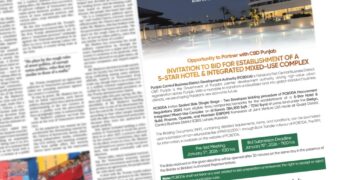Diverging fiscal perspectives between the International Monetary Fund (IMF) and Pakistani officials have led to a stalemate in ongoing negotiations. The IMF is urging for additional taxation measures to meet fiscal targets, particularly emphasizing the need for a primary surplus. However, the Pakistani government is hesitant to impose further taxes through a mini-budget for the remainder of the fiscal year.
One of the key points of contention is Punjab’s fiscal performance, which the IMF has criticized for its failure to generate sufficient revenue and control expenditures. The IMF has proposed granting the Federal Board of Revenue (FBR) the authority to collect taxes in Punjab, with the province receiving the collected revenue after deducting collection charges.
The IMF is also advocating for enhanced fiscal federalism, suggesting a revision of the National Finance Commission (NFC) Award in collaboration with the federal government and provinces on a medium-term basis. The goal is to ensure better coordination and guarantee budget targets for the fiscal year 2024.
Despite commitments made by the Punjab government to reduce expenditures and address accumulated debts, disagreements persist. The IMF has called for the implementation of a simplified tax scheme for retailers, a move that the government is cautious about, especially regarding its impact on its political base.
The IMF’s projections for tax collection in the coming months differ from those of the Ministry of Finance, leading to uncertainty about the need for a mini-budget. The FBR believes it will achieve its annual tax collection target without additional measures but has agreed to share monthly targets with the IMF for review.
In an effort to improve tax compliance, the FBR plans to launch a door-to-door campaign in major cities to register non-filing retailers. It also aims to use electricity meter data to detect tax evasion and conduct audits when necessary. Additionally, the FBR intends to implement strict supervision of assessments under the new tax scheme to prevent revenue loss.
The discrepancy in projections for non-tax revenue and rising expenditures, particularly the debt servicing bill, are contributing to the challenges in meeting the agreed budget deficit target. As negotiations continue, both sides are working to find common ground to address the fiscal challenges facing Pakistan.


















